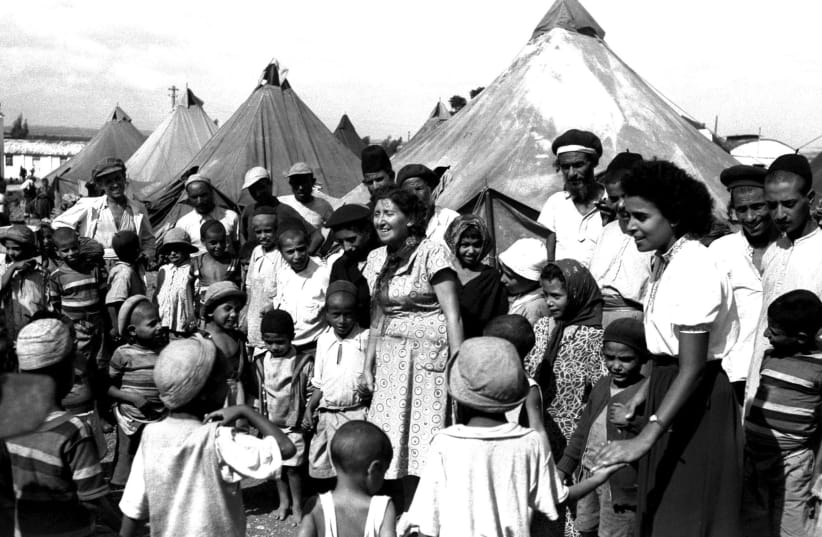This week, the government took a huge step in trying to heal the wounds and make things right for the families of the victims. But is it enough?
The Yemenite Children’s Affair, the disappearance of babies and toddlers from Yemeni, Balkan and Mizrahi immigrant families in the early years of the state, has been an open wound for many Israelis for the past 70 years.
It has become an accepted narrative that upward of 1,000 babies were taken from their families and put up for adoption, usually by established Ashkenazi families that were said to offer the children a better future.
In many cases, the families were told their child had died, even though they didn’t see the body or a place of burial and or receive a death certificate. Some came to believe the children were, in fact, kidnapped and adopted by Ashkenazi families, both in Israel and abroad.
After state inquiries in 1967, 1988 and 1995, the government concluded that there was no illicit adoption plot, and in the majority of cases children really did die, though some were victims of gross medical negligence and bureaucratic abuses – including children being buried before parents were informed.
Another inquiry, in 2001, said it was possible that individual social workers put some children up for adoption, but not as part of a national conspiracy. In 2016, then-Likud MK Nurit Koren pushed for the establishment of the Knesset Special Committee on the Affair of the Disappearance of Yemenite, Mizrahi and Balkan Children, which increased public awareness.
On Monday, the government for the first time officially recognized the suffering of those families by announcing a NIS 162 million financial compensation program.
According to the explanation of the plan, NIS 150,000 will be given to families that were not told when or how their children died, or were told that they were buried, but their graves were never found or were found after many years. NIS 200,000 will be given to families that do not know what happened to their child. The families that were affected will be able to file requests for compensation beginning in June.
In announcing the plan, Prime Minister Benjamin Netanyahu called the Yemenite Children’s Affair “among the most painful in the history of the State of Israel,” adding that he had instructed Education Minister Yoav Gallant to develop curricula on the subject to teach in school history classes to ensure that it would not be forgotten. Finance Minister Israel Katz said he hopes the decision would “begin to heal, even in a small measure, the pain of history.”
However, the move was greeted with less than full-out enthusiasm. The Union Sefaradi Mundial, a Jerusalem-based NGO devoted to the legacy of Sephardi Jews, led by Moroccan-born former government minister Shimon Shetreet, put out a statement saying that the compensation was being offered as an act of generosity rather than admittance of guilt.
“Compensation by itself is not enough. The government must accept responsibility. The State of Israel has to [own up to] these events of children who went missing,” the statement added.
Shetreet himself said his sister Sara disappeared when she was 10 months.
“My own parents and the parents of other children would be turning in their graves had they known that after all these years, the State of Israel is still refusing to take responsibility,” he said.
Another NGO that has helped the families, the Amram Association, also called the plan “a step toward the families; however, it is only partial and does not provide a proper and comprehensive response to the case.”
The decision “is missing the most significant component in the process of taking responsibility – an official apology from the state.”
Although the decision to compensate the families is a commendable one, it does not go far enough in acknowledging the government’s culpability in the sorry saga of the families that arrived in Israel with nothing and attempted to build their lives here.
There are still too many question marks and unknown details surrounding the affair to let it die with a payoff. Only when an official apology is made by the government to the families and their descendants can Israel truly put this dark stain behind it.
